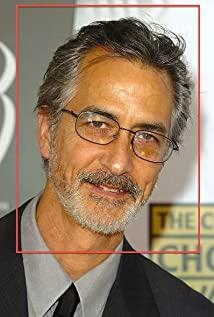The two people's famous works, the tragic and solemn youth story:
Wong Kar-wai's "Carmen in Mong Kok" in 1988, the story of two gangsters in Mong Kok.
Cai Mingliang's "Youth Nezha" in 1992, the story of two delinquent teenagers in Taipei.
Urban emotional alienation works, they all fall in love with strangers:
Wong Kar-wai's "Chongqing Forest" in 1994, fell in love with passers-by and decided to start waiting for strangers.
In Cai Mingliang's 1994 "Long Live Love", sharing a bed with a stranger for a little comfort.
Works of special practitioners, daily life of revolutionary work:
Wong Kar-wai's "Fallen Angels" in 1995, the killer is to make the world pure and eliminate the four evils.
In Cai Mingliang's "A Cloud in the Sky" in 2005, the A-film actor was also an actor, but he did not wear clothes when he appeared on the scene.
Gay men's sex work, fall in love with the body or the feeling:
Wong Kar-wai's 1997's "Breakthrough", the days of two men wandering in a foreign land.
In Cai Mingliang's "River" in 1997, the father and son had a strange illness in the bathroom.
Men and women can't bear to publish works, but I love you but I don't want to say it:
Wong Kar-wai's "In the Mood for Love" in 2000, love wanders around under the street lights by the door.
Cai Mingliang's "What time is it over there" in 2001, I just want to know what time it is over there.
Peeping innocent works, I just want to know you through that hole:
Wong Kar-wai's "2046" in 2004, the male writer and the girl next door ambiguous pull.
In Cai Mingliang's "Hole" in 1998, unemployed men and women are no longer lonely in the rainy night.
For a promised work, I will find you everywhere:
Wong Kar Wai's 2007 "Blueberry Night", give you the key and I will come back to eat blueberry pie.
Tsai Ming-liang's "The Overpass is Missing" in 2002, the overpass is gone and looks for you with your watch.
The two directors pretending to be B should be said to be relatively advanced, and both have gathered large groups of fans. Wong Kar-wai is expounding on the contradiction of love between men and women in the city. He wants to fall in love but has no courage to hold on to it. He wants to give up but he can't stop. Just like Liu Zhengzhenwei said, "I can't stand the movies he made. If two people love each other, they will love each other. If you don’t love, you don’t love, but he insists on being sloppy and verbose.” And Cai Mingliang’s films are more about reflecting the absurd and indifferent conditions of contemporary cities, the loneliness of individual existence, and the relationship between people. Separation and alienation.
Relatively speaking, the works of the two directors prefer Wong Kar Wai. Tsai Ming-liang is like a nerd. His films are inward-looking, and he likes a saucy director like Wong Kar-wai. I just want to shoot like this, I want to make the picture. The filming is so beautiful, it is to make the soundtrack of the film so beautiful, and it is to make it like the petty bourgeoisie, and it will make you mad. Cai Mingliang, on the contrary, I just want to make the picture so dirty, the characters so gray, and the rhythm so slow, I'm anxious to kill you. I admire the two directors very much. They have insisted on their own style for so many years.
View more about My Blueberry Nights reviews











